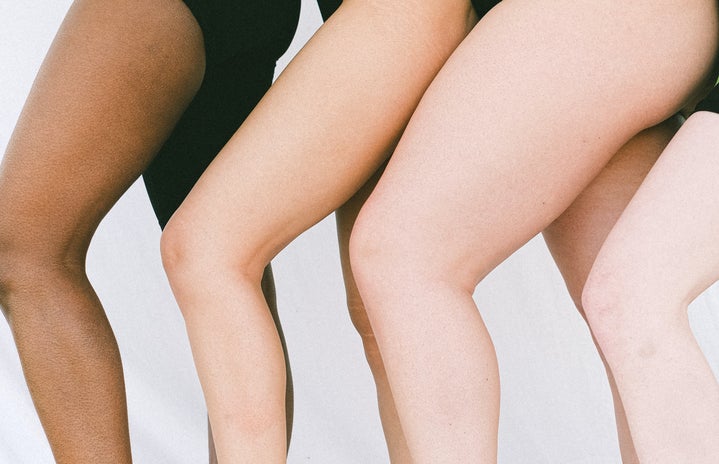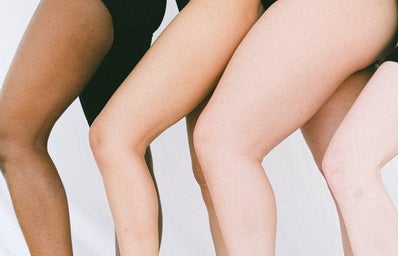I don’t love my stomach. I have struggled practically all my life with this fact. I recognize I am not plus-sized at all and can not relate to the struggles, prejudice, and systemic bias experienced by overweight people, but I still live with insecurity and feel it creep into my life daily. I still feel a little nervous everytime I try on new jeans and practically dread pool parties. When I was younger, I worked to involve myself in the body positivity movement, but it felt fake. It felt like I was lying to myself. I did not love my stomach, so what was the benefit in telling myself I did? Today, I still do not love my stomach, but I appreciate it. I appreciate that it acts as a safety cushion for my organs and a home for food that fuels me each day. I appreciate that when I was sick it held my feeding tube and today it protects my uterus. I do not love my stomach, and that is okay.
“I love my body. It is seamlessly beautiful.” That is body positivity: the belief that bodies of all sizes, shapes, colors are beautiful, partly because of their imperfections. The body positivity movement is dedicated to debunking historically enforced beliefs that skinny is “better” and challenging our society to show respect and love to all body types. Media and its exposure of skinny culture has led to increased insecurity amongst all generations, and the body positivity movement is here to combat that.
And while this movement is beautiful in intent, it is highly unobtainable and limiting. With its extreme focus on appearance only, body positivity creates a hyperfixation on loving everything about you, a feat that has been made impossible by human culture. Body positivity is not working to explode our preconceived notions, but rather light a small match in changing it. It is a good first step and a terrible last one.
But there is an alternative: a movement—still not perfect—that helps many of these problems while still valuing all bodies. This is the body neutrality movement. The movement that does not focus on loving your body, but appreciating your body and all it can do for you; not what your body looks but what it can do. It focuses on caring about our body even if we do not love it. For example, a body neutral person may say, “I appreciate my arms because they allow me to hug my family” or “I appreciate my stomach fat because it protects my stomach, intestines, liver, and pancreas .” It is practically inevitable that each of us has one thing we do not like about ourselves, it is human. So instead of faking that you are completely obsessed with your biggest insecurity, a more productive claim may be, “I do not love this body part, but I am so grateful it allows me to do X, Y and Z.” Appreciation over love will allow for confidence building and removal of toxic positivity. This movement does not solve medical bias, and thus can not be the last step to fixing our biases based on physique. But it is a better first step to solving the systematic issues as it recognizes effectively the root of the problem; hating your body or rather, believing you should hate your body.
Both of these movements have pros and cons. Neither are without fault: both have helped to some extent, and both are better alternatives to toxic diet culture. There is no one answer for the right way to love yourself; the journey to this state of mind is continuous and individualized. So as you continue exploring the beauty your body holds, think deeper than how it looks in a mirror, and appreciate how your body carries you through life. I am not exempt from the continuation of this practice; I must continue to work actively to appreciate a part of my body I feel is less than. But I am on this journey of body neutrality, and it is a rewarding one.

